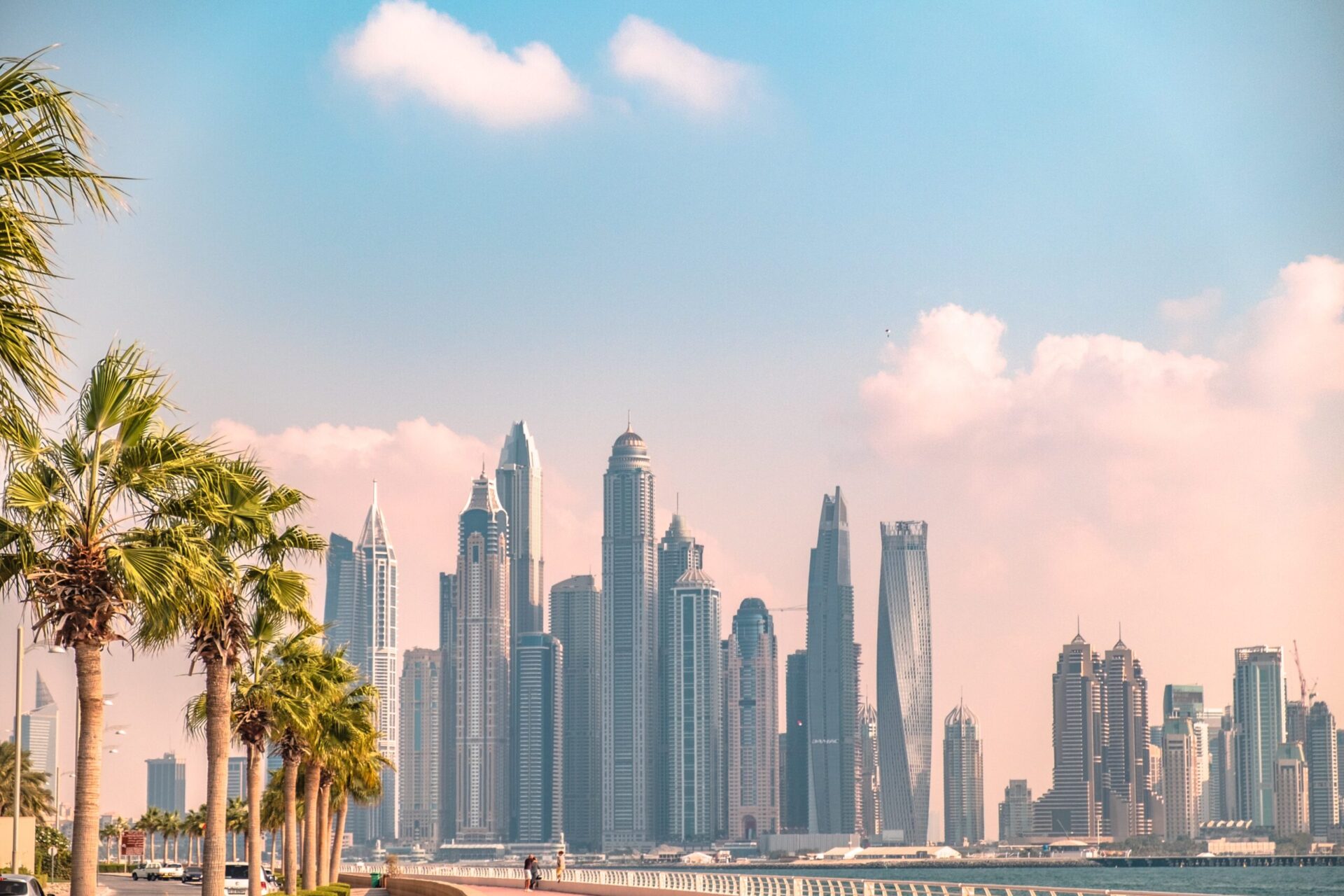Key Takeaways:
- Luxury travel is not just about expensive accommodations and amenities, but also about personalized experiences and exceptional service.
- Exclusivity and privacy are important factors that define luxury travel, allowing travelers to escape from the crowds and enjoy a more intimate experience.
- Attention to detail is crucial in luxury travel, with every aspect of the trip being meticulously planned and executed to ensure a seamless experience for the traveler.
- Authenticity plays a significant role in luxury travel, as travelers seek unique and culturally immersive experiences that go beyond typical tourist attractions.
- Sustainability is becoming increasingly important in luxury travel, with travelers seeking environmentally-friendly options and supporting local communities during their trips.
1. The Evolution of Luxury Travel Throughout History
Luxury travel has evolved significantly throughout history, reflecting changes in society, technology, and cultural values. In ancient times, luxury travel was reserved for the elite ruling classes who could afford extravagant accommodations and transportation. For example, during the Roman Empire, emperors and aristocrats would travel in luxurious chariots or on ornate ships.
During the Middle Ages, luxury travel became synonymous with pilgrimages to holy sites such as Jerusalem or Santiago de Compostela. These journeys were considered a privilege and were often accompanied by lavish accommodations and amenities along the way.
In the 19th century, luxury travel took on a new form with the rise of steamships and railways. This allowed wealthy individuals to embark on grand tours of Europe or exotic destinations like Egypt or India. Luxury hotels and resorts began to emerge to cater to this growing demand for opulent experiences.
2. Key Factors Defining Luxury in Travel Experiences
When it comes to defining luxury in travel experiences, several key factors come into play:
Exclusivity:
- Luxury travel often involves exclusive access to private resorts, secluded destinations, or VIP treatment.
- Access to limited-edition experiences or unique opportunities that are not available to the general public is also a hallmark of luxury travel.
Exceptional Service:
- Luxury travelers expect personalized service that goes above and beyond their expectations.
- This includes dedicated concierge services, private butlers, and attentive staff who anticipate their needs.
High-Quality Amenities:
- Luxury travel experiences often feature top-of-the-line amenities and facilities.
- This can include luxurious accommodations, fine dining options, spa services, and state-of-the-art fitness centers.
Overall, luxury in travel experiences is defined by the combination of exclusivity, exceptional service, and high-quality amenities that create a sense of indulgence and comfort for the traveler.
3. Cultural Perceptions of Luxury in Travel
3.1 The Influence of Cultural Background
Cultural perceptions play a significant role in shaping the concept of luxury travel. Different cultures have varying definitions and expectations when it comes to luxury. For example, in some Eastern cultures, luxury may be associated with opulence and extravagance, while in Western cultures, it may be more closely tied to exclusivity and personalized experiences. Understanding these cultural nuances is crucial for travel industry professionals to cater to the diverse needs and desires of their clientele.
3.1.1 Luxury Travel Preferences Across Cultures
- In Asian cultures, luxury travel often involves high-end accommodations, fine dining experiences, and access to exclusive attractions.
- In European cultures, luxury travel may focus on historical sites, cultural immersion, and unique local experiences.
- In North American cultures, luxury travel might revolve around convenience, comfort, and exceptional service.
4. Subjectivity vs. Objectivity: Defining Luxury Travel
The definition of luxury travel can vary greatly depending on individual perspectives. While some may associate it with lavishness and extravagance, others may prioritize authenticity and unique experiences over material comforts. This subjectivity makes it challenging to establish a universal definition of luxury travel.
4.1 The Subjective Nature of Luxury
Luxury is subjective by nature as it depends on personal preferences and values. What one person considers luxurious might not resonate with another individual’s idea of luxury travel. It could range from staying at a five-star resort with all-inclusive amenities to embarking on an adventurous journey off the beaten path.
4.1.1 Personalized Luxury Experiences
One aspect that defines luxury travel is the ability to tailor experiences to individual preferences. Whether it’s a private guided tour, customized itineraries, or personalized services, luxury travel aims to provide unique and exclusive experiences that cater to the specific desires of each traveler.
5. The Intersection of Ethical Considerations and Luxury Travel
In recent years, ethical considerations have become increasingly important in the luxury travel industry. Travelers are now seeking experiences that align with their values and contribute positively to local communities and the environment.
5.1 Sustainable Luxury Travel Practices
Sustainable luxury travel involves minimizing negative impacts on the environment and supporting local communities while still providing high-end experiences. This can include staying at eco-friendly resorts, engaging in responsible wildlife tourism, supporting local artisans, or participating in community-based tourism initiatives.
5.1.1 Eco-conscious Luxury Accommodations
- Hotels implementing energy-saving practices such as solar power usage and water conservation systems.
- Luxury resorts offering organic and locally sourced food options to reduce carbon footprint.
- Supporting accommodations that actively engage in environmental conservation efforts.
6. Beyond Exclusivity: Exploring Alternative Paths to Luxury Travel
Luxury travel is no longer solely defined by exclusivity and opulence. Modern travelers are seeking unique and meaningful experiences that go beyond material possessions.
6.1 Authentic Cultural Immersion
An alternative path to luxury travel involves immersing oneself in the local culture and traditions of a destination. This can include participating in cooking classes with locals, learning traditional crafts or dances, or staying with local families for a more authentic experience.
6.1.1 Homestays and Cultural Exchange Programs
Homestays provide an opportunity to live with local families, gaining insights into their daily lives and customs. Cultural exchange programs allow travelers to interact with locals, fostering mutual understanding and appreciation of different cultures.
7. Personalization and Customization: Enhancing the Luxurious Travel Experience
Personalization and customization have become essential elements in luxury travel experiences. Travelers are seeking tailored itineraries and unique services that cater specifically to their preferences.
7.1 Tailored Itineraries
Luxury travel providers are offering personalized itineraries that consider individual interests, allowing travelers to explore destinations at their own pace and focus on activities that align with their passions.
7.1.1 Private Guides and Concierge Services
- Hiring private guides who offer in-depth knowledge about a destination’s history, culture, and hidden gems.
- Concierge services that assist with restaurant reservations, event tickets, or arranging exclusive access to attractions.
- Curated experiences based on traveler preferences such as wine tasting tours or adventure excursions.
8. Technology’s Role in Elevating Luxury in Modern-Day Travel
The integration of technology has revolutionized the luxury travel industry by enhancing convenience, connectivity, and personalization for travelers.
8.1 Seamless Travel Experiences through Technology
Incorporating technology into luxury travel allows for seamless experiences from booking to the actual journey itself. This includes online platforms for personalized trip planning, mobile apps for real-time updates during travel, and digital concierge services accessible via smartphones or tablets.
8.1.1 Virtual Reality (VR) and Augmented Reality (AR)
Utilizing VR and AR technologies, luxury travel providers can offer virtual tours of destinations, allowing travelers to preview accommodations, attractions, and experiences before making their bookings. This enhances the decision-making process and adds an element of excitement to the planning phase.
9. Luxury Travel: A Pathway to Personal Growth and Self-Discovery
Luxury travel has evolved beyond mere indulgence; it has become a means for personal growth, self-reflection, and self-discovery.
9.1 Wellness Retreats and Mindfulness Experiences
Luxury travel now encompasses wellness retreats that focus on rejuvenation, mindfulness practices, and holistic well-being. These experiences provide opportunities for self-reflection, relaxation, and personal growth.
9.1.1 Meditation Retreats
- Retreats offering meditation sessions led by experienced instructors in serene natural settings.
- Incorporating mindfulness practices into daily activities such as yoga classes or nature walks.
- Cultivating a sense of inner peace and balance through wellness-focused activities.
In conclusion, luxury travel is not solely defined by opulence and extravagance, but rather by a personalized and immersive experience that caters to individual preferences and desires. It is about creating moments of indulgence, exclusivity, and relaxation, while also embracing cultural authenticity and sustainability. Ultimately, the philosophy of luxury travel lies in the pursuit of enriching experiences that leave a lasting impact on travelers’ lives.
What defines luxury travel?
Luxury travel is often connected with special and distinct experiences, along with more customized services. When deciding on a purchase, discerning travelers prioritize the destination, followed by the quality of on-site services, with a preference for exclusive boutique hotels and international hotels.
What are the 5 C’s of luxury travel?
The five key elements of luxury travel are culture, cuisine, community, content, and customization. These factors are essential for a truly luxurious travel experience.
What is the value of luxury travel?
Based on research by Euromonitor International, the luxury travel market is projected to experience an annual growth rate of approximately 5.7% and is expected to reach a value of $589.5 billion by 2022.
What is the purpose of luxury travel?
Luxury travel provides opportunities to visit extraordinary destinations and have exceptional experiences. It allows for stylish and comfortable travel. The choices are limitless, ranging from exclusive villas in Europe to luxurious resorts on private islands and extravagant safaris in Africa. Moreover, luxury travel offers personalized attention and specialized services.
What are the characteristics of luxury travel?
Luxury is often connected with factors such as privacy, confidentiality, offering unique benefits, connections with top suppliers, and personalized experiences that cater to the specific needs of clients. A luxury traveler does not limit their travels to public holidays but instead chooses to travel all year round.
What would be considered a luxury?
Luxury goods encompass a range of high-end products such as designer handbags, top-tier watches, luxury vehicles, fine jewelry, private jets, and high-fashion clothing. It is important to note that the desire for luxury goods correlates directly with one’s income. As a result, any substantial increase in income will naturally lead to higher demand for luxury items.




